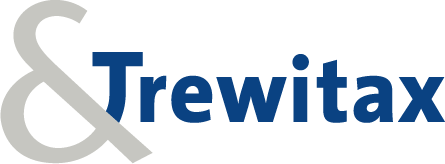Extension of flat rate taxation of private use of business vehicles
What is it all about?
With the amendment of the Federal Ordinance on Occupational Costs effective Jan. 1, 2022, the private fee for the use of a company vehicle was increased to 0.9 percent per month. With this increase, travel expenses to the workplace are now also included in the flat rate. However, it is still possible to document actual private use with a logbook and claim the deduction of travel expenses. In principle, this adjustment only affects direct federal tax. However, cantons are free to adjust their cantonal regulations accordingly. This change was made to counter the administrative burden that arose with the introduction of the FABI law in 2016. As a result of the FABI law, employees faced additional work in their private tax returns regarding the declaration of business expenses. Below, we show how this administrative effort is reduced again with the increase in the private fee.
What has been applied so far
With the introduction of the FABI law, taxpayers with a company vehicle had to declare their commute to work for work days without field service at 0.70 francs per kilometer on their tax return. In return, they can claim the days without field service as business expenses. Due to the limitation of the travel expense deduction for direct federal tax to 3,000 Swiss francs (cantons may decide individually to introduce a limitation), the entire expense can no longer be deducted for tax purposes in the case of a longer trip. If the travel expense fell within the deduction limit, it became a zero-sum game: the trip to work was added to income, but the same amount could again be deducted from business expenses.
New starting in fiscal year 2022
This will change starting with the 2022 tax return: taxpayers will now be able to waive the home-to-work commute deduction from their taxable income. In return, no home-to-work commute deduction can be claimed. Those who wish to continue to account for actual private use must keep records. Private mileage, including commuting, is considered income and is reported accordingly in the paycheck. The portion of travel to work can be deducted from business expenses (travel expense deduction).
Who is suffering?
Basically, it can be said that taxpayers with a company vehicle who accept a long commute will benefit from this change. This is because they are no longer "stuck" with the difference between travel expenses and the deduction limit. In addition, those who have a low percentage of outside work will benefit, since in this constellation the compensation may also be greater than the deduction. On the other hand, employees with a short commute or a high percentage of outside work are likely to be worse off.
What about the cantons?
Not all cantons have yet decided whether to adopt this new federal regulation. It is possible that employers will continue to issue a certificate for fieldwork days and that employees will have to report business expenses separately for the federal government and the canton on their tax returns. Canton Zurich wants to counter this: it has already come out in favor of a uniform tax assessment and decided to adopt the new federal regulation.
"In a nutshell."
1 Following the amendment of the Ordinance on Professional Costs, travel expenses to the place of work are now covered.
2. starting with the 2022 tax return, commuting to work days outside working hours when using a company vehicle no longer needs to be reported as taxable income.
3. taxpayers with a long commute or a low percentage of outside work benefit from this change.
4 It is not yet certain which cantons will adopt this new legislation.
Dipl. Wirt.-Ing. Martin Klumpp

